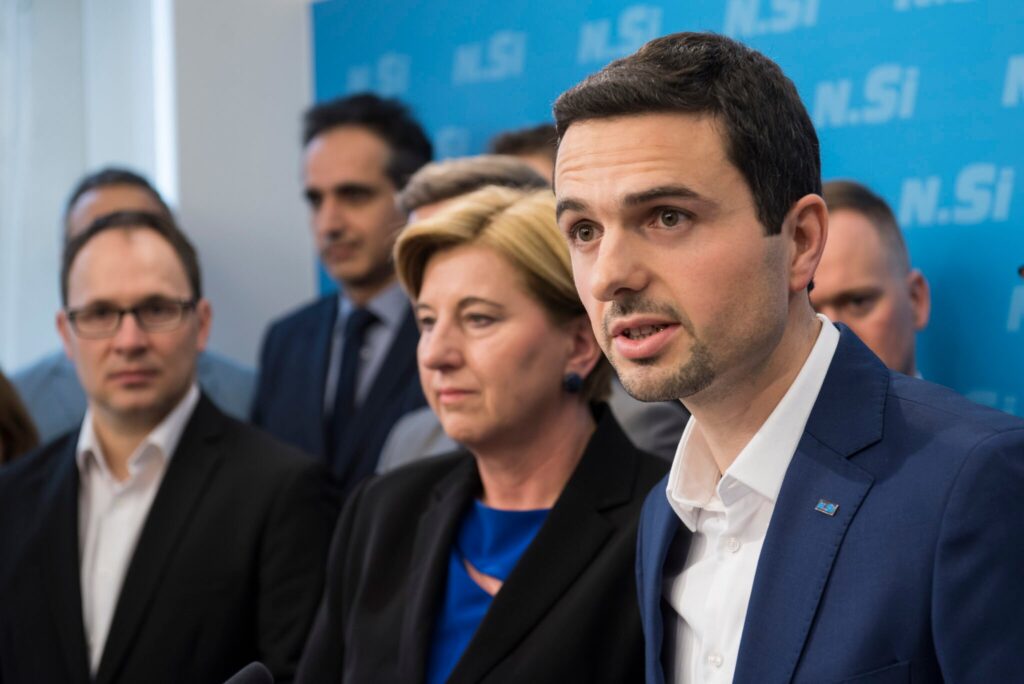On Sunday, a public opinion poll conducted by Mediana for the media outlet POP TV showed that the Slovenian Democratic Party (Slovenska demokratska stranka – SDS), led by Janez Janša, and the Freedom Movement party (Gibanje svoboda), led by Robert Golob, are significantly more evenly matched, but the share of votes for the New Slovenia party (Nova Slovenija – NSi), led by Matej Tonin, is dramatically lower than the Ninamedia poll that was published by Dnevnik a week ago measured. The share that is lower by almost a half is strikingly similar to the percentage that Mediana measured for the NSi party two weeks ago, when it conducted the poll for the newspaper Delo. This does not seem to be a fluctuation in the party’s popularity in the opinion of the public, but a measurement error, which is incredibly wide: there is a huge difference between less than six percent and more than ten percent.
According to POP TV’s report on Sunday, the Freedom Movement party is slightly ahead of the SDS party at the top, while the NSi party is far behind Tanja Fajon’s Social Democrats (Socialni demokrati – SD) but ahead of Luka Mesec‘s Left party (Levica) among the parliamentary parties.
There are different explanations as to what is the reason for the low shares of the NSi party. According to some, summer is the time when this smaller right-wing party is on holiday and appears less in the media, because there is no National Assembly and similar opportunities to appear. Meanwhile, people on the more critical side believe that the party is paying for its harsh criticism of the SDS party and Janez Janša, with which the NSi MEP Ljudmila Novak and the government lawyer from this party, Janez Pogorelec, have been impressing the left-wing media in the country for a long time now, building on the unusual decision of the NSi leadership, which after the elections agreed with the ruling party to take over the leadership of the two most important oversight commissions of the parliament, which, according to the election results, should have been headed by the much larger SDS party: the oversight of the intelligence and security services and of the control of public finances. The common aim of the ruling party and the NSi party seems to have been to frustrate the SDS party, which is a competitor of the NSi, and the coalition does not want to control the much larger and more capable opposition party SDS.
NSi explained its decision for the unusual “collaboration” by saying that it did not want to be in the shadow of SDS and even blamed the larger opposition party for taking over what did not belong to it, saying that it was its own fault for not being ready to immediately take over only one of the commissions (for the control of informers), which NSi had “offered” them. Comparisons of the shares achieved with the electoral performance show that among the parliamentary parties, only the Freedom Party and NSi are currently losing votes.
When it comes to small parties, which are only included in the Mediana polls, the Pirates and Resni.ca parties are above 3 percent, i.e. close to the threshold for entering the National Assembly.


